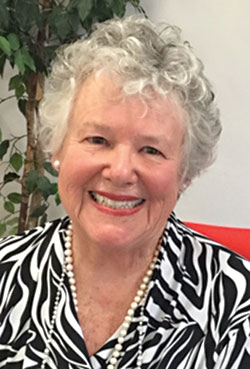
Now in West Virginia, far from the tropical heat of Florida, we soon fell into the mindless and carefree days of summer camp regimentation. Our days, starting at 8 a.m., were divided into meal hours, morning and afternoon activities, rest hour after lunch each day and an all-camp activity each evening like “capture the flag,” a play written and put on by campers, a contest like “who can get up the greased pole” that challenged campers each summer, Indian dancing at the totem poles with drums, homemade costumes and chants or stories told around the campfire.
Schedules are wonderful in that one merely attends to them. Thus, our days and evenings were full. There were no worries, no questions, no arguments, no conflicts and no moments when there wasn’t something to do. One didn’t even have to think. Nothing to do but have fun together and enjoy life in nature.
Campers hoped for the occasional hard rains during the summer, which meant the river level was high enough to take canoe and kayak trips from a town upriver where we were trucked with all our equipment, picnic lunches and launched. We then simply paddled blissfully down river back to camp.
Those days on the river were idyllic and I can still return, at least in memory, at the speed of a flicker of an eye — the exquisite joy of paddling down river in beautiful West Virginia, the sun at my back, my paddle slicing the clear waters and the rainbow trout flashing beneath its surface.
Such heavy rains also flooded part of the outer fields and when campers saw the grassy water, they raced for their swimsuits for what I learned was their traditional annual mud slides. This activity was the most fun for the campers, because they came out of the activity, like every kid dreams of doing, totally covered in mud.
The next summer a new, more fastidious director who had replaced the old director and was not aware of the campers’ love for the mud slide, thought the activity rather nasty and tried to cancel it. He had an immediate revolution on his hands as every camper broke his command not to mud slide and the activity went on as before, with perhaps even more screams of joy and mud.
The lesson new counselors learned was don’t try to change tradition at summer camp. The campers had come for years and years as children and then they became counselors in training (CITs) by age 17 and then counselors by college age and everyone adhered to camp tradition and dogma like a religion.
I watched the mud slide debacle with interest because I had some qualms myself, specifically about the tradition of assigning campers into Indian tribes. After all, the campers were all descendants of European settlers coming to the new world that had taken lands from native Americans. It seemed somewhat ignoble to me that the all-white campers celebrated tribal life as they did even though many of their ancestors had taken the land.
Yet I knew my Anglo-Saxon ancestors had lost their lands in England to the Normans in 1066 with the invasion of William the Conqueror, forcing my forebears into serfs to their new masters for many centuries.
Before that, the Vikings and Romans had come to England and mindlessly taken land. It is a heartless lesson but it is true still today that land will be taken by the stronger, more advanced and more determined culture (look at what is happening now in Ukraine and probably, soon enough, in Taiwan).
If America weakens the land we know as our home will be taken over once again. And we will become slaves to new masters repeating a cycle in history that happens over and over again.
Qualms or not, I quickly learned the campers cherished the ongoing Indian lore in camp each summer and especially their membership in tribes, as they were assigned to Seneca, Miami, Delaware or Shawnee tribes when they first arrived to camp and they stayed forever in their tribe.
They never forgot which tribe accumulated the most points each summer and therefore was the winning tribe nor who was voted “princess” or “chief” of their tribe and which year they had served.
Rather the sort that will poke fun at human behavior (and especially at myself), I quickly learned tribal membership was lifetime and could never be a laughing matter. Only a fool would have challenged the Indian camp traditions.
I was and still am Seneca. My new friend, Peter, my son’s cabin counselor, along with my son, Wake, were Seneca too. My daughter, Liz, was Miami.
Some things are written in stone. Who was I to try to change anything? Besides, I was proud to be Seneca. We won the highest tribal points every year. Yay Seneca!
© 2024.



